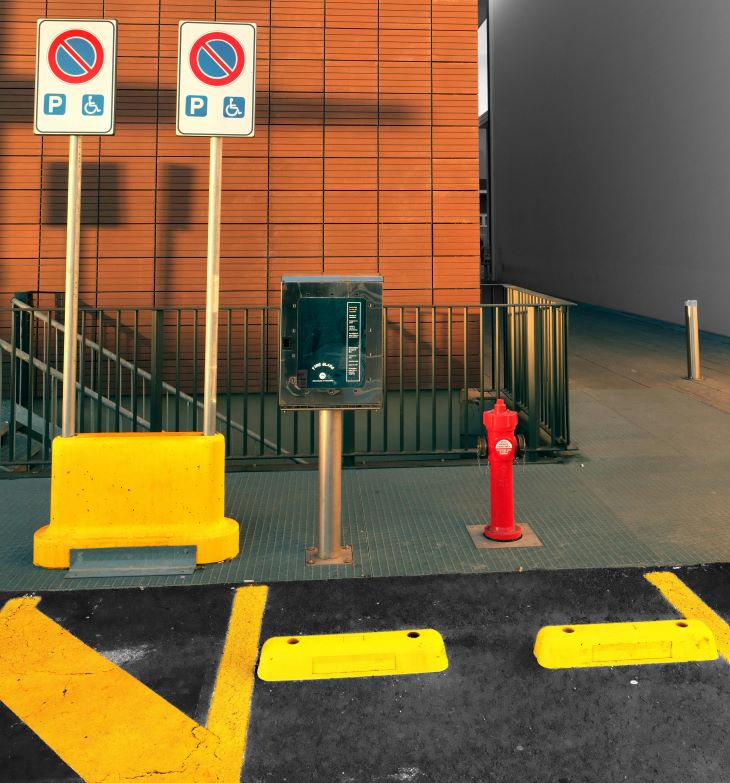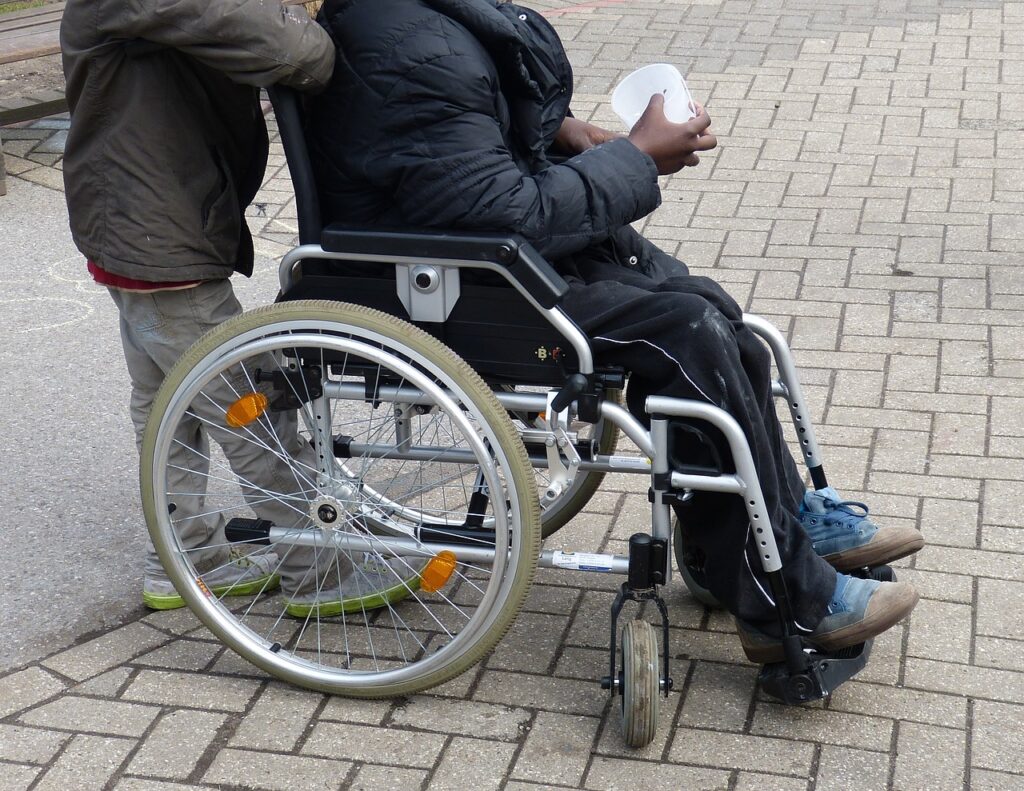There are different types of handicap permits available in the United States. These handicap permits, often referred to as disabled parking permits or placards, are official credentials issued by governmental authorities that grant parking privileges to individuals with disabilities or reduced mobility. It allow holders to park in designated handicap-accessible spaces, ensuring easier access to facilities and services.
The issuance of handicap permits promotes accessibility and inclusivity in public spaces. These permits enable individuals with disabilities to navigate their daily lives with greater ease by providing closer proximity to entrances and facilities.
In this article, we explore the various types of handicap permits available, including temporary and permanent permits, state-issued variations, international permits, and the consequences of misuse. By understanding these different types, readers will gain insights into eligibility criteria, application processes, benefits, limitations, and legal considerations associated with handicap permits.
Temporary Handicap Permits
What is a Temporary Handicap Permit?
A Temporary Handicap Permit is a special parking permit issued to individuals who have a temporary disability that affects their mobility. These permits allow holders to park in designated accessible parking spaces for a limited duration, typically until their condition improves. To obtain such a permit, individuals usually need certification from a medical professional confirming the temporary nature of their disability.
Application Process for Temporary Handicap Permit
Applying for a temporary handicap permit involves submitting medical documentation to the designated issuing authority, such as the Department of Motor Vehicles (DMV) or local municipality. The application may also require personal information and a nominal fee.
Duration and Renewal
The duration of a Temporary Handicap Permit varies depending on the jurisdiction and the specific medical condition. Common durations can range from a few weeks to several months. It is usually determined based on the expected timeframe for recovery as certified by a medical professional.
Temporary Handicap Permits are not typically renewable in the same way as permanent permits. Instead, if your temporary disability persists beyond the initial permit duration and you still require accessible parking privileges, you may need to reapply for a new permit. This process generally involves obtaining updated medical certification to confirm the continued necessity of the permit.
Benefits and Limitations
Temporary permits offer short-term parking benefits to individuals in maintaining independence and mobility while recovering from injuries or medical procedures, facilitating a smoother transition back to regular activities. However, they may restrict long-term accessibility compared to permanent permits. Once the temporary period expires and the individual’s condition improves, the permit becomes invalid, requiring re-evaluation and potential re-application if necessary.
Permanent Handicap Permits
What is a Permanent Handicap Permit?
A Permanent Handicap Permit, also known as a Permanent Disability Parking Placard or Permit, is a special parking permit issued to individuals who have a permanent disability that significantly affects their mobility. This permit allows holders to park in designated accessible parking spaces, providing easier access to facilities and services.
Key features of a Permanent Handicap Permit include:
- Issuance Based on Permanent Disability: Permanent permits are issued to individuals whose disability is expected to last indefinitely or for a prolonged period, typically defined by local regulations or medical assessments.
- Medical Certification: To qualify for a permanent handicap permit, applicants must provide certification from a licensed medical professional confirming the permanent nature of their disability. This certification usually includes details about the disability’s impact on mobility and the necessity for accessible parking privileges.
- Long-Term Validity: Unlike temporary permits, which are issued for a limited duration, permanent permits have an extended validity period. In some jurisdictions, they may require periodic renewal or review to ensure continued eligibility.
- Accessibility Benefits: Permanent handicap permits ensure that individuals with long-term mobility impairments can access essential locations such as medical facilities, workplaces, shopping centers, and public amenities conveniently.
- Display Requirements: Permit holders are typically required to display the permit prominently on their vehicle while parked in designated accessible spaces. This helps enforcement officials and others identify legitimate use of accessible parking.
- Renewal and Replacement: Depending on local regulations, permanent permits may require periodic renewal. Additionally, procedures for replacing lost, stolen, or damaged permits vary by jurisdiction.
Overall, a Permanent Handicap Permit serves to improve the quality of life for individuals with permanent disabilities by providing them with essential parking accommodations that support their mobility and independence in daily activities.

Application Process for a Permananet Handicap Permit
The application process for permanent permits involves similar steps as temporary permits but focuses on providing long-term accommodations. The application process for a Permanent Handicap Permit generally involves the following steps, though specific details may vary depending on your local jurisdiction:
- Consultation with a Medical Professional: The first step is to consult with a licensed medical professional who can assess your condition and provide documentation supporting your eligibility for a permanent handicap permit. This documentation typically includes details about the nature and extent of your disability, its impact on your mobility, and the prognosis indicating its permanence.
- Obtain an Application Form: Obtain the application form for a Permanent Handicap Permit from your local Department of Motor Vehicles (DMV), municipal office, or relevant authority. This form will require you to provide personal information, details about your disability, and information about your healthcare provider who certified your condition.
- Complete the Application Form: Fill out the application form completely and accurately. Ensure that you include all required information and any supporting documentation as specified by the application instructions.
- Submit Required Documents: Along with the completed application form, submit the medical certification provided by your healthcare provider. This certification should clearly state the nature of your disability, its permanence, and the need for accessible parking privileges.
- Payment of Fees (if applicable): Some jurisdictions may require payment of a fee for the issuance of a Permanent Handicap Permit. Check with your local DMV or municipal office for information on applicable fees and accepted payment methods.
- Processing Time: Allow sufficient time for processing of your application. Processing times can vary depending on your location and the volume of applications received. Be sure to inquire about estimated processing times when you submit your application.
- Approval and Issuance: If your application is approved, you will receive your Permanent Handicap Permit. This permit typically includes information such as your name, permit number, expiration date (if applicable), and any specific restrictions or conditions.
- Renewal and Review: In some jurisdictions, Permanent Handicap Permits may require periodic renewal or review to ensure continued eligibility. Be aware of any renewal requirements and deadlines specified by your local DMV or relevant authority.
- Use of Permit: Once you receive your Permanent Handicap Permit, ensure that you display it prominently on your vehicle while parked in designated accessible spaces. Follow any additional regulations or restrictions imposed by local authorities regarding the use of the permit.
It’s essential to follow the specific guidelines and requirements set by your local DMV or relevant authority to ensure a smooth application process for obtaining a Permanent Handicap Permit. If you have any questions or need assistance during the application process, contact your local DMV or municipal office for guidance. You can also use our Dr. Handicap online platform as we provide services as an intermediary between you and your local DMV.
Main Key Differences Between Temporary and Permanent Handicap Permits
Let’s compare both types of permits for a better understanding:
- Nature of Disability: Temporary permits are for disabilities expected to improve within a defined timeframe, while permanent permits are for long-term or indefinite disabilities.
- Documentation: Both require medical certification, but for temporary permits, the certification indicates the temporary nature of the disability, whereas for permanent permits, it certifies the permanence.
- Validity: Temporary permits are valid for a specific duration based on medical assessment, while permanent permits are typically valid for a longer period or indefinitely.
- Renewal Requirements: Temporary permits may require reapplication if the disability persists beyond the initial period, while permanent permits may require periodic renewal or review to confirm continued eligibility.
- Fees: Both may involve fees for issuance, which vary by jurisdiction.
Different Types of Handicap Permits
State-Issued Permits
- Requirements and Regulations
State-issued permits adhere to specific regulations outlined by each state’s Department of Motor Vehicles or equivalent authority. Requirements include documentation of disability and residency.
- Variations in Issuing Authority
Issuing authorities may vary within states, impacting the application process and validity period of permits. Uniform guidelines ensure consistency while allowing for state-specific adaptations.
Temporary vs. Permanent Permits
- Distinctions in Eligibility Criteria
Temporary permits require a temporary disability prognosis, while permanent permits necessitate a long-term or permanent disability certification. See above for more details.
- Variances in Application Processes
Application processes differ in documentation and verification procedures based on the type of permit sought (temporary or permanent).
International Handicap Permits
International handicap permits facilitate accessibility for travelers with disabilities across different countries. These permits are recognized under international agreements and conventions.
Authorities issuing international permits vary by country, with recognition granted through reciprocal agreements among participating nations. Eligibility and application requirements for international permits may involve additional documentation, such as proof of travel plans and disability certification.
International permits ensure continuity of accessibility during international travel but are subject to the regulations and recognition of the host country.
Consequences of Misuse of Handicap Parking Permits
Misuse of handicap permits includes unauthorized use by individuals not eligible for the permit or using expired or counterfeit permits. The legal consequences for misuse can include fines, penalties, and the revocation of permit privileges. Enforcement agencies actively monitor and penalize misuse to uphold fairness and accessibility. Ethical concerns surrounding misuse highlight the importance of respecting accessibility rights for individuals with disabilities and promoting integrity in permit usage.
Learn more on our post ‘The Impact of Handicap Parking Abuse in the US’ in the Dr. Handicap Blog.
Different Types of Handicap Permits Available Explained
Understanding the distinctions between temporary, permanent, state-issued, and international handicap permits is essential for navigating accessibility regulations effectively. Proper use of handicap permits ensures equitable access to facilities and services for individuals with disabilities, promoting inclusivity and social responsibility.
Future considerations may include advancements in permit technology, enhanced international cooperation on accessibility standards, and continued advocacy for disability rights. In conclusion, handicap permits play a crucial role in promoting accessibility and inclusivity worldwide. By comprehensively understanding the different types of permits available and their respective regulations, individuals can contribute to creating a more accessible environment for all.
Need more information on disabled parking in the US? From common disabilities for handicap placard approval across all states to common parking issues for people with disabilities, we offer a useful bank of detailed topics on the Dr Handicap blog. Check it out today!
Featured image by Rollz International on Unsplash.

